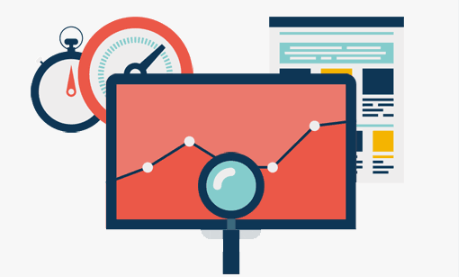As a business owner, deciding how to approach online marketing can be difficult. Two popular options are search engine optimization (SEO) and Google Ads. Both have their pros and cons in driving organic traffic to your website. Let's compare SEO vs Google Ads to understand which approach may work better for your goals.

What is SEO?
SEO refers to optimizing your website, content, and online presence to rank higher in organic or unpaid search engine results. The goal is to get your pages to the first page of Google, Bing, Yahoo, and other search engines through relevant, high-quality content and technical implementation.
SEO takes an ongoing effort like keyword research, link building, on-page optimizations, technical site setup, and content creation. However, the benefits of SEO can last longer since organic rankings don't depend on monthly ad spend.
What are Google Ads?
Google Ads (formerly AdWords) allow businesses to bid on keywords for text ads that may show above or to the right of organic results on Google Search. You only pay when someone clicks your ad. It works on a cost-per-click (CPC) model where you set daily budgets and bids.
Google Ads provide almost immediate exposure through promoted ad listings. Their position can fluctuate based on daily budgets and competitor bid activity. A/B testing ads is also easier compared to SEO's longer optimization cycles.
SEO vs Google Ads: Which is Better
1. SEO takes more time initially but lasts longer
SEO requires 2-6 months of ongoing effort before regular traffic starts. tweaking keywords, content, and technicals is an evolving process. But once ranked, the traffic keeps coming without extra costs as long as the content stays relevant.
Google Ads can generate traffic within days. but they require consistent spending commitment. Stop paying, and the ads disappear from search results the next day. SEO's benefits are more sustainable in the long run for established businesses.
2. SEO targets more detailed queries
SEO excels at targeting long-tail, specific informational queries with relevant pages. It leverages topics and content depth to rank for keyword phrases with lower search volumes but high intent.
Google Ads work better for shorter commercial queries with wide appeal but may not reach people searching for niche details. SEO lets you leverage long-form content better for specialized queries.
3. SEO & Google Ads – a balanced approach
For the fastest results, combining SEO and Google Ads capitalizes on their respective strengths. SEO builds credibility and awareness through topical expert content over months. Google Ads then supplement SEO by driving instant traffic to new or seasonal offerings.
Use Google Ads temporarily for new campaigns or seasonal products while SEO optimizes dedicated category/product pages. Integrating both develops a multi-pronged online presence for covering short and long-tail traffic goals.
4. Google Ads provide quicker metrics
Google Ads lets you measure CPC bids and ROI within days of launching campaigns. You can assess relevance, bid adjustments, and audience interest more granularly through daily reporting.
SEO requires patience since on-page and off-page activity takes time to impact natural rankings. It's harder to link changes directly to measurable traffic or lead to fluctuations over short periods.
5. Budget requirements are different
Google Ads require setting monthly budgets, estimating potential CPC costs, and committing ad spending consistently. Budgets vary widely by industry and goals, starting from a few hundred dollars.
While SEO involves initial setup costs, it has lower recurring running costs. The only factor in content creation is technical audit costs periodically over SEO's long-term focus.
6. Google Ads reach wider audiences
Google Ad campaigns let you target all searchers globally using location and language filters. SEO is limited by what keywords and topics rank within your immediate geography.
Use Google Ads to supplement local SEO and test broader international appeal for newer websites and products before fully establishing global SEO footprints.
Both SEO and Google Ads play important roles, with no single 'better' option. Their combined strengths suit different budget levels and stages of a business. SEO is foundational for authority while Google Ads supplement short-term goals.
Regular website usage also influences the choice. SEO favors sites with dedicated informational sections while ads work better for transactional or service-based sites. Test both approaches based on your unique business goals and model.
